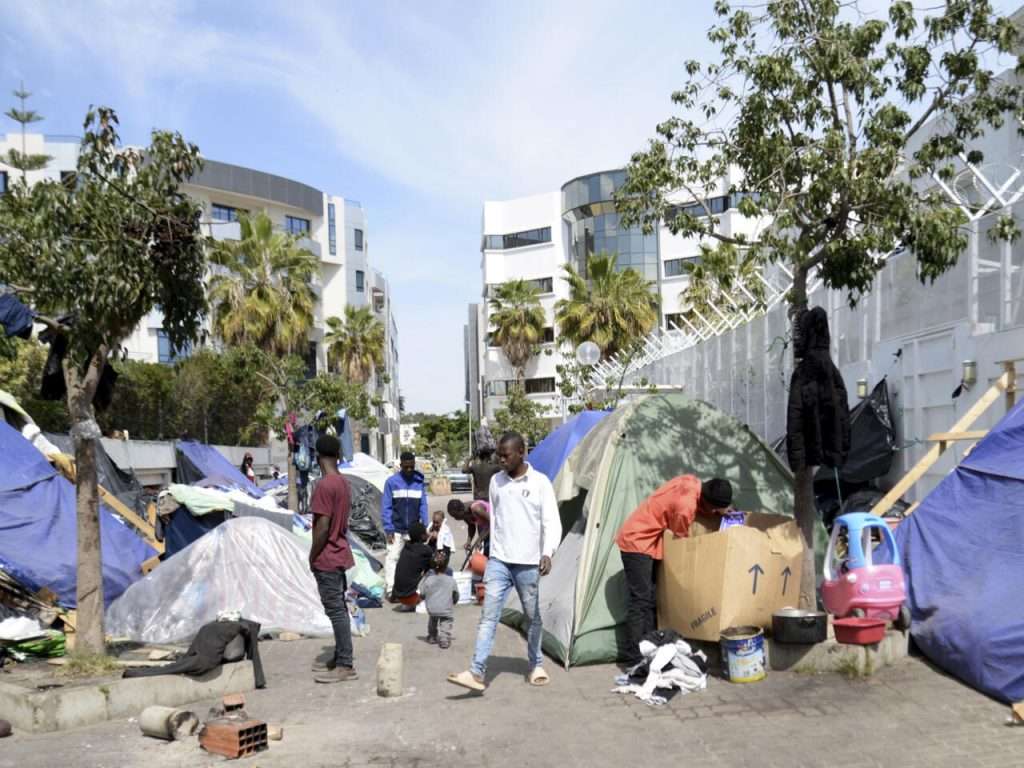Tunisia: Migrants face appalling conditions, despite EU funding

Migrants in Tunisia endure dreadful conditions that may be fueled by EU funding, according to MEMO and agencies.
Inside the makeshift camps in Tunisia’s southern cities, thousands of human beings have no access to clean water, security, sanitation, or adequate shelter, not to mention their vulnerability to theft, sexual assault, violence, and starvation.
On 16th July 2023, the EU pledged 1 billion euros to Tunisia in an attempt to revive the country’s battered economy and contribute towards the migrant crisis after signing a “strategic partnership” agreement to combat human trafficking and illegal migration.
However, the Human Rights Watch (HRW) have criticised the EU’s approach, raising concerns that their financial aid may be contributing towards and enabling the multiple human rights violations the African migrants experience.
Tunisian President Kais Saied has rejected all accusations of racism and abuse of black African refugees, despite many facing expulsions and being relocated in desserts and olive groves without mobile phones, maps, or money. In August 2023, the bodies of at least 27 sub-Saharan migrants were found near the Tunisia-Libya border.
READ: African Refugee Racism Surge in Tunisia
The migrants who survive against the wrath of Tunisian authorities, police personnel, and racially charged Tunisian citizens, take their lives into overcrowded boats and venture into the fatal waters of the Central Mediterranean Sea. However, those who make it into Italy now have to tackle yet another obstacle set up by the far right-wing.
On 22nd February, Italy ratified a controversial migration deal with Albania – one of Europe’s poorest and least developed countries, according to Reuters. The deal involves the construction of processing centres in Rome which will then relocate migrants across the Adriatic Sea to Albania.
Human rights activists and citizens of Albania have concerns over the country’s security and the repercussions the deal could have on Albania’s crucially important tourist industry.
Conditions in Libya’s refugee camps seem to be equally as atrocious. A former detainee from Sierra Leone and survivor of the Abu Salim detention centre in Tripoli, Aisha told Al Jazeera reporters of women being routinely subject to sexual assault from camp guards as well as the executions of refugees who attempted to escape the camp.
MEMO/AFP/Reuters
Want to chase the pulse of North Africa?
Subscribe to receive our FREE weekly PDF magazine














